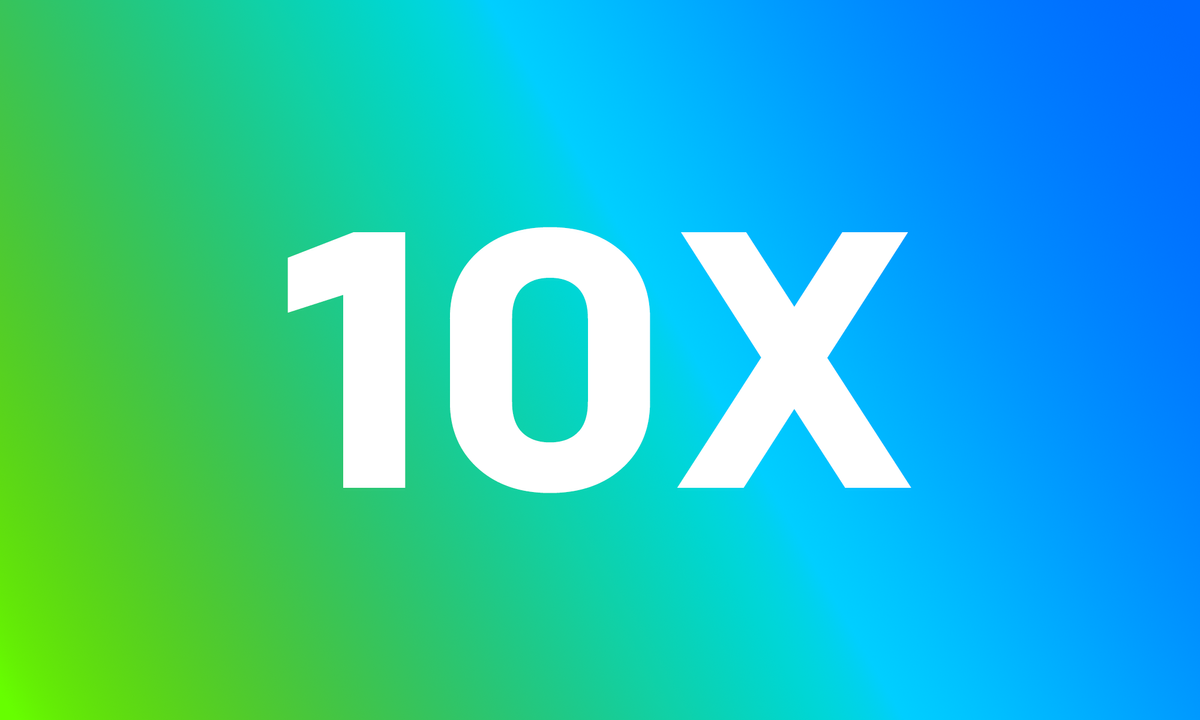10x Effective
Notes on the underlying systems that help people be incredibly productive.

In a conversation with startup founders, I was asked my perspective on what makes someone 10x more effective. In many ways, I'm standing on the shoulders of others.
Sam Altman has a great, quick read on the traits of successful founders. Sam says that three things make startup founders successful: working hard, being internally driven, and obsessed with their work. According to Altman, these are the same things that make people successful in any field.
I generally think it's a combination of three key factors: taking care of yourself, being incredibly focused and driven, and having the systems in place that help you work.
Here's the system I use...
Health
Deep Sleep
Sleep is the foundation for health and productivity. People who sleep less than six to seven hours a night increase their risk for health conditions such as obesity, depression, headaches, and heart disease – and less productive. The brain processes information following the day's events while we sleep, consolidating memories and resolving emotional issues that occurred during the day.
I aim for 7.5 hours of sleep, with 2 hours in deep sleep – I use Oura to track this.
Daily Movement
Working out has health benefits such as reducing the likelihood of developing chronic diseases, improving mental health, and helping people live longer. It also helps improve productivity and cognitive function.
I aim for a minimum of 30 minutes, running/walking as a canvas for thoughts, and 30-60 minutes of functional strength training, which helps with mood and stress.
Diet
A healthy diet reduces significant health risks, helps you look good and feel good about how you look, and reduces depression or stress. Generally, you should aim for your nutrients to come from your foods and not through supplementation. What a healthy diet looks like exactly is still debatable.
I believe in minimizing processed ingredients, alcohol, and sugars as much as possible. I generally follow a high protein diet with quality fats from olive or MCT oil. But sometimes you need a pizza.
Supplements
To maintain good health, it's essential to ensure that our bodies get all of the nutrients they need. And sometimes you live in the Pacific Northwest, the UK, or some other place where the sun rarely comes out. This is where supplements come in – they provide our bodies with essential nutrients that may not be available in our diets. So do your research, talk to your doctor, and see what works for you.
Since 2013 I take Alpha GPC, Vitamin D, and Krill Oil daily in the morning; Magnesium before bed.
Breathwork
The book Breathe by James Nestor is all about breathing and the health benefits of breathwork. It completely changed my perspective on the importance of breathing (and primarily breathing through the nose).
A technique I've used for years is box breathing. Box breathing is a form of mindful breathing to control your emotions, reduce stress and improve health. Follow a specific breathing pattern for 1-2 minutes, and get back to work.
In the morning or on a high-stress day: breath in, hold, breath out, and hold for 4 seconds each.
Water
Water helps the body flush out toxins, regulates body temperature, and transports nutrients and oxygen to cells. Being dehydrated impairs cognitive function and causes health problems.
I drink 3L of water daily, sometimes more (I prefer sparkling). You don't need an app for tracking water. Just get a container/glass you like, and you'll make it happen.
Caffeine
Caffeine keeps you energized, maintains long-term health, protects your cells from damage due to free radicals (typically from things like pollution), and makes it easy to be highly productive. There's strong evidence that you should wait 90-120 minutes after waking before your first cup of coffee to maximize your body's natural alert response. Depending on your metabolism, you likely want to stop drinking coffee in the early afternoon to prevent any sleep disruption.
I drink cold brew (it's less acidic) and supplement L-theanine, sometimes make bulletproof coffee, and mostly drink Gyokuro green tea. L-theanine is an amino acid found in green tea that reduces stress and anxiety, and improves cognitive function. It takes the aggressive edge off of caffeine as well.
Minimize your pendulum swing
If you're getting quality sleep, nutrition, and activity, you won't need energy drinks, modafinil, or other substitutes for energy.
Mindset
- Remove excuses – You either do or don't
- Bias for action – Start the first draft now and iterate
- Work in the open – Accountability to your commitments is motivating
Goal & Reflection System
- Goals/Objectives – Break your goal down into weekly tasks
- Weekly tasks – Consistently hitting 80% of your weekly tasks is a massive lever for progress and a predictor of successfully achieving your goals
- Daily goal – What's the one important thing to do today?
- Daily reflection – Better today than yesterday?
- Weekly reflection – How did my weekly execution align with my long-term goals?
Apps & Tools
- Rescuetime – Bring awareness to where you really spend your time
- Social Media – Limit it; I haven't used Facebook products for years
- Less is more – Stop chasing new tools and find a few that work for you
- Weekend cleanup – Take an hour to clean your boards, tabs, backlogs, desktop, pages, etc
Organizing your digital life
These days I split my time between Craft and Notion. Here's how I do it...
- PARA Model – Organize things into Projects, Areas, Resources, and Archives.
- Ideas List – Organize ideas when they come to you. I use a template with the following format: Pitch, Insight/Data, Belief, Bet, and Notes.
- Resonance List – Keep a catalog of great articles. It fights infinite browser tabs and helps your great content later.
- Weekly Agenda – Each week, generate an overview of your week manually. This creates intentionality about your calendar and work. I use a template with the following sections: goal, tasks, reflection on last week, weekly setup (my standing meetings and tasks), things to review, meetings this week, anti-list (things I didn't plan to do), interesting reads, and rollovers from previous week.



